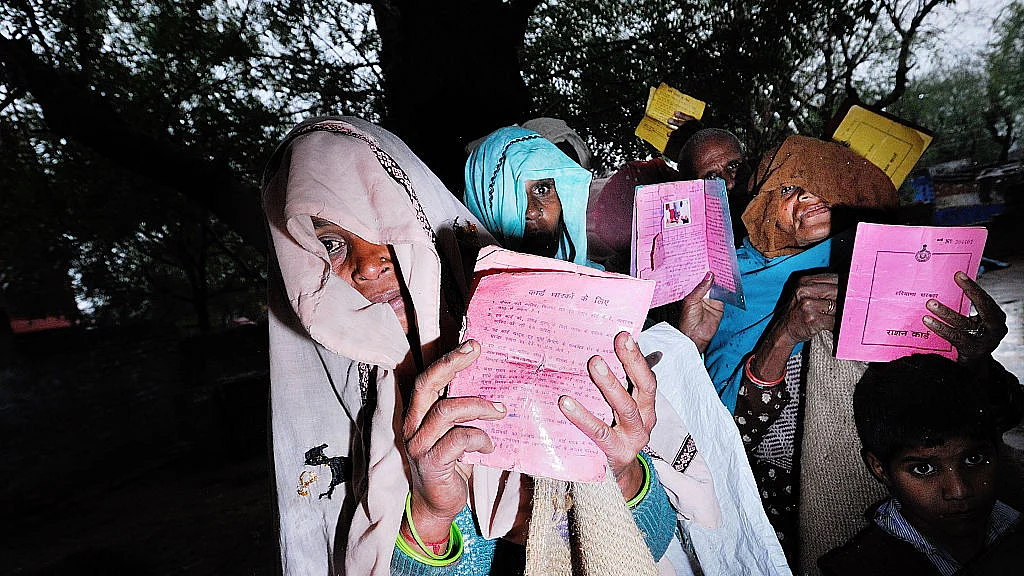Universal Basic Income: Ripe for discussion, if not implementation
Providing a Universal Basic Income to 75% of the population could require 5% of the GDP, while subsidies to the middle class already cost 3% of GDP, says the Economic Survey 2016-17

Positioning Universal Basic Income as an alternative to various social welfare schemes in a bid to reduce poverty, the Economic Survey today said UBI is a "powerful idea" whose time has come for serious discussion.
"The UBI is a powerful idea whose time even if not ripe for implementation is ripe for serious discussion," said the Economic Survey for 2016-17, tabled in Parliament by Finance Minister Arun Jaitley.
The Survey estimated that a UBI that reduces poverty to 0.5% would cost 4-5% of GDP, assuming that those in the top 25% income bracket are not part of it. "On the other hand, the existing middle class subsidies and food, petroleum and fertilizer subsidies cost about 3% of GDP," it noted.
Observing that UBI, based on principles of universality and unconditionality is a conceptually appealing idea, the Survey spoke also of challenges involved in implementation.
Listing out reasons for UBI, the survey said the scheme will reduce poverty and vulnerability, result in better targeting of the poor, provide insurance against shocks, result in improvement in financial inclusion and also provide psychological benefits.
Citing a survey on mis-allocation of resources for the six largest central sectors and centrally sponsored sub-schemes (except PDS and fertiliser subsidy) across districts, the Survey pointed out that the districts with most requirements are precisely the ones where state capacity is the weakest.
"This suggests that a more efficient way to help the poor would be to provide them resources directly through UBI," it said.
Noting that despite making remarkable progress in bringing down poverty from about 70% at Independence to about 22% in 2011-12 (the Tendulkar committee), the pre-Budget document stressed that "wiping every tear from every eye" is about a lot more than being able to imbibe a few calories.
Listing out reasons for UBI, the survey said the scheme will reduce poverty and vulnerability, result in better targeting of the poor, provide insurance against shocks, result in improvement in financial inclusion and also provide psychological benefits.
Against the backdrop of rising concerns that technological innovations and automation could take away jobs, the idea of universal basic income is gathering steam, which will ensure a certain amount of income for the poorest.
Finland has started experimenting with this concept and other countries are likely to follow suit. Last year, voters in Switzerland rejected a proposal for such a universal basic income.
Follow us on: Facebook, Twitter, Google News, Instagram
Join our official telegram channel (@nationalherald) and stay updated with the latest headlines
- GDP
- Parliament
- Budget 2017
- Switzerland
- Universal Basic Income
- UBI
- Finland
- Economic Survey
- Economic Survey 2016-17
- subsidies
- PDS
- fertiliser subsidy
- poverty
- Tendulkar committee